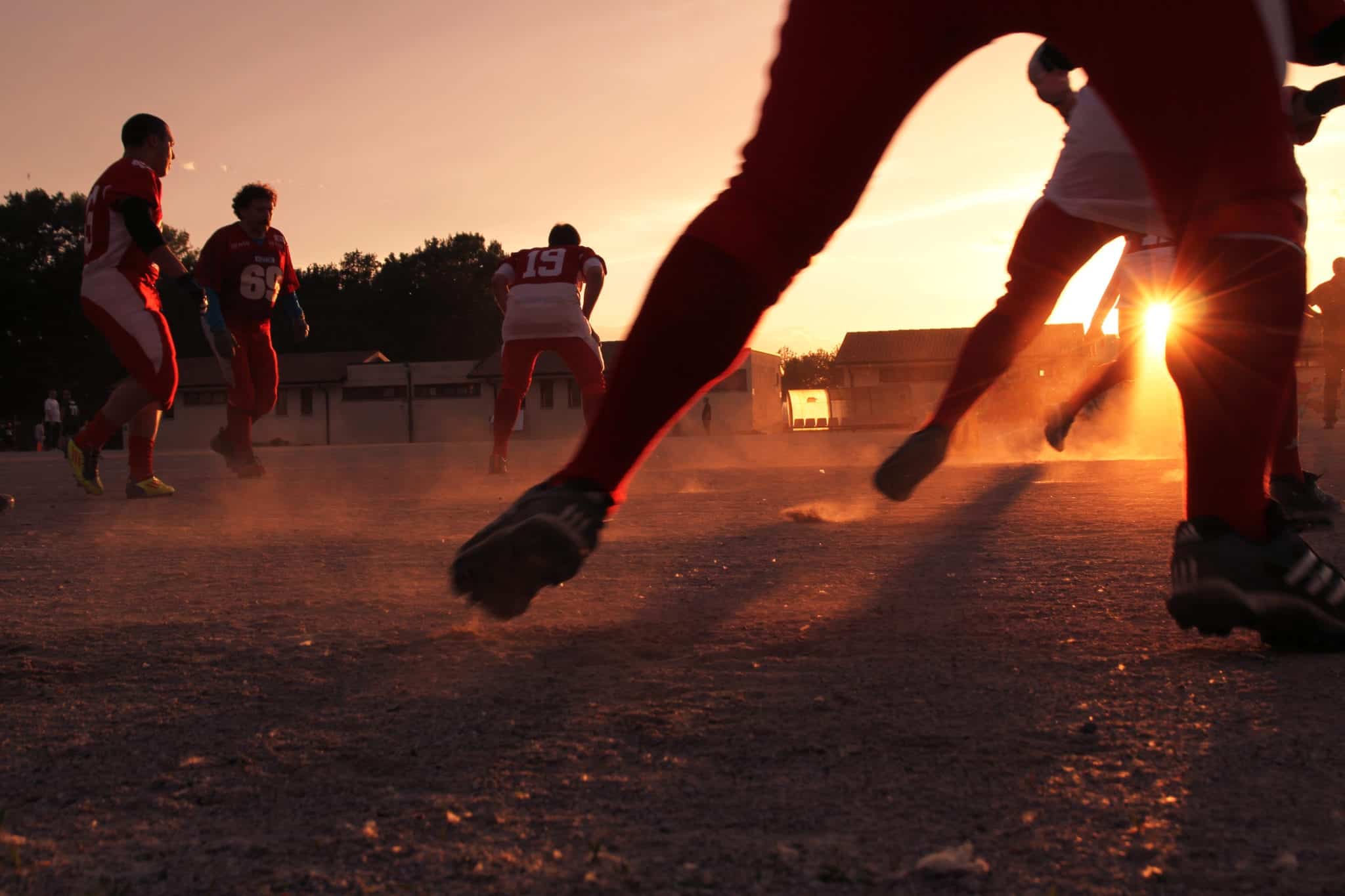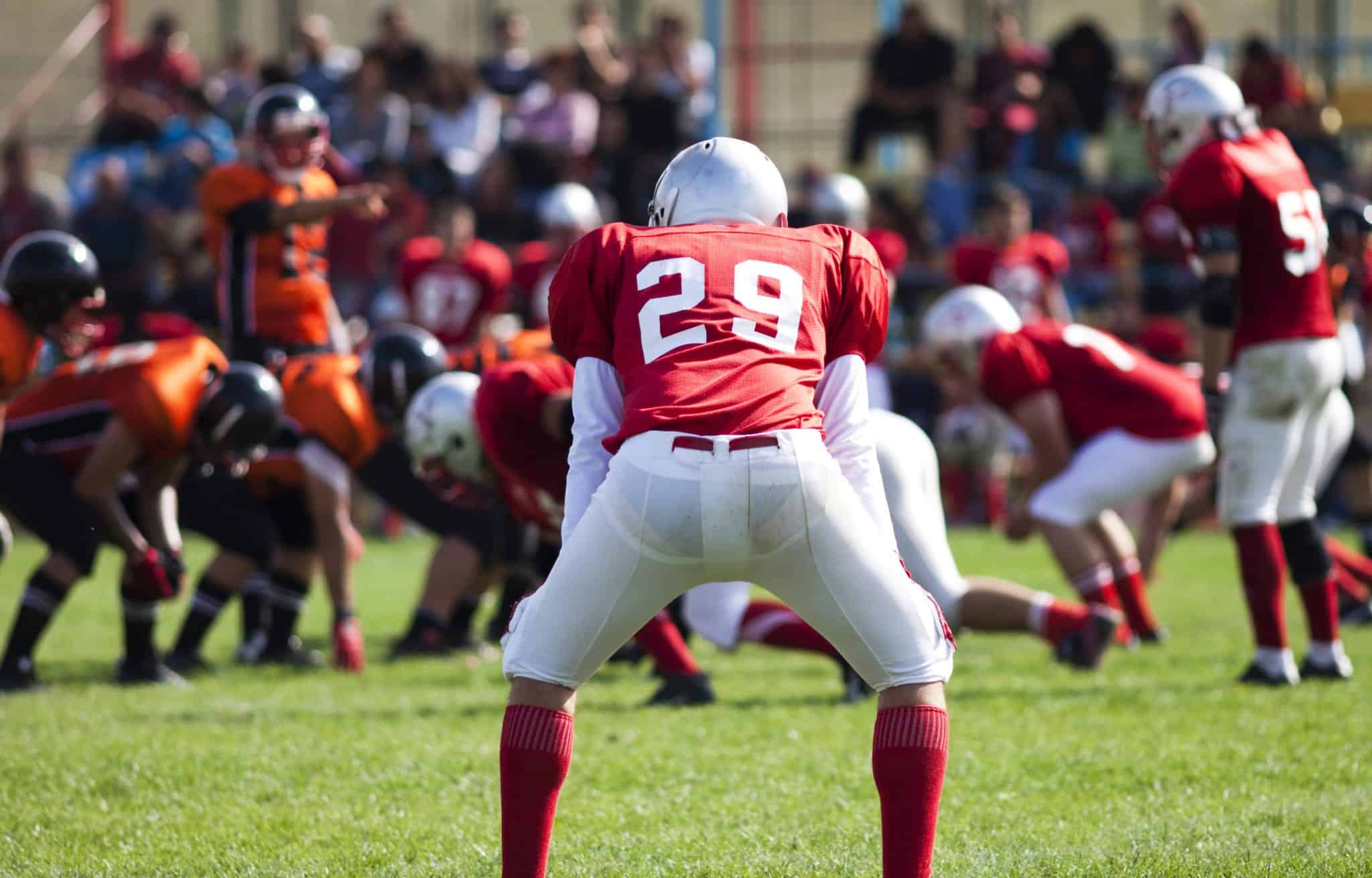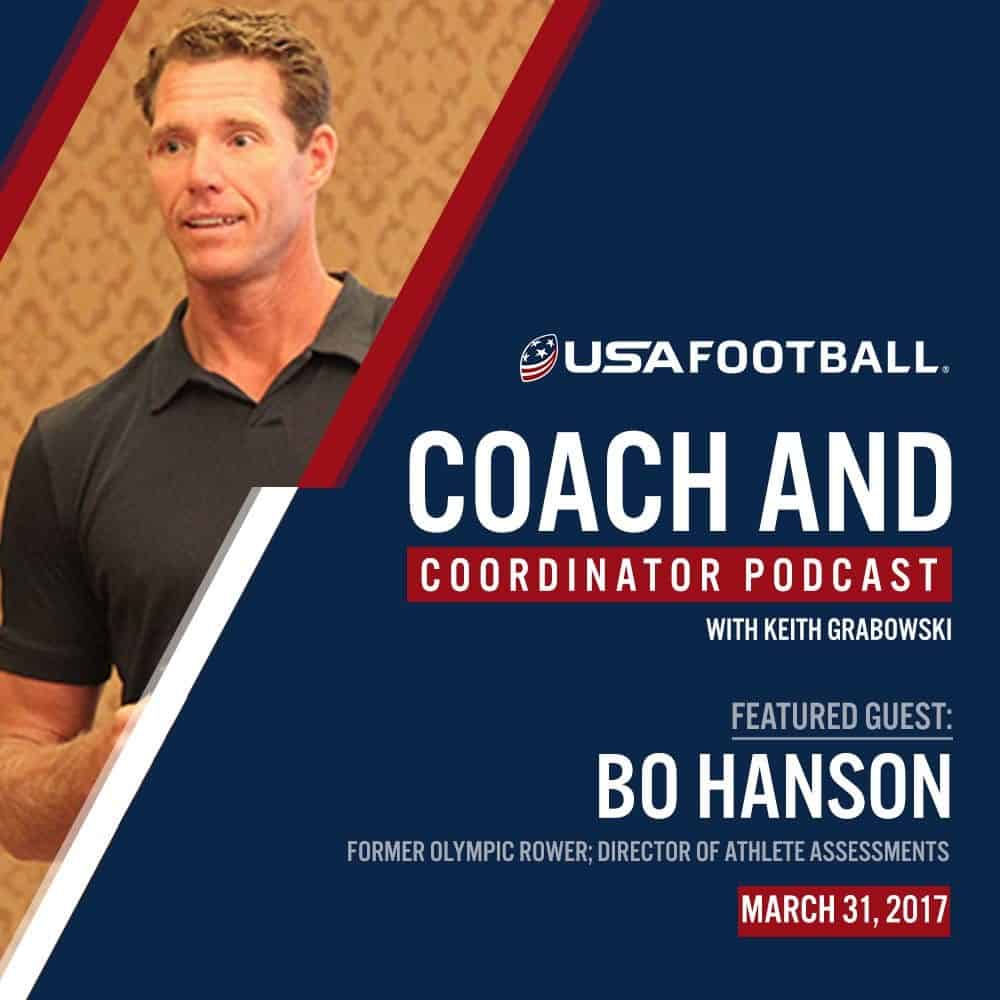In March this year, Athlete Assessments’ Bo Hanson was invited to speak on USA Footballs’ Coach and Coordinator Podcast. Amongst other things, he discussed the importance of “performance through people”, coaching millennials and why the Coach-athlete relationship is a key performance factor.
You can listen to the podcast in full here! And we highly recommend it because Bo shares some of his championship winning strategies. We’ve pulled out a few of our favorite topics below.
“How do you find the winning edge? Start with yourself, understand yourself and your philosophy, then you can start to understand others,” Bo Hanson
At precisely 7 minutes, Bo discusses the importance and benefits of being a “learning coach”.
“A Coaches role demands a lot. And the scope of what’s involved is huge. Coaches need to understand the physiology as well as psychology of the sport they are in and things are always changing. Which is why we need to be constantly learning,” Bo said.
One way to do this is through technology, which Bo speaks about at 7:55 minutes.
“Technology provides an enormous amount of information, new developments in bio and neuro feedback, methods of understanding brainwave patterns, thinking processes and performance states. This kind of information wasn’t around 10 years ago. It has unlocked the ability to understand the mental side of the game and Coaches need to make sure they are on top of these developments. More than that, Coaches need to ensure they can break this information down and utilize it effectively. And there are processes and ways of doing this,” Bo said.

At 10:01 minutes, Bo delves into the differences between the athletes of today, and those of generations past.
“The information factor is a huge factor that makes today’s athlete different. Many coaches I speak with say that their athletes communicate differently, they aren’t as resilient, don’t listen, lack leadership skills and fail to contribute to the team. And while these are all fair critiques of this generation, it’s not their fault. It’s simply a product of the environment they have grown up in,” Bo said.
“The environment millennial athletes are growing up in isn’t teaching them these skills. So, Coaches need to be able to take on this role as teacher. Every Coach believes having an effective captain is important but many don’t spend the time to teach this. You want to teach your athletes resilience and there is a process for this. Resilience is a skill that can be learnt and taught.”
Bo goes on to challenge Coaches to look at this generation gap as more of an empathy gap (13:40 minutes).
“We have often just forgotten what it’s like to be young. We need empathy to be able to relate to and coach our athletes better. We need to find ways to create connections and better relationships, as these are key performance factors,” Bo said.

“What we have learnt is that today’s athletes don’t respond to authority figures and dictators. They have been brought up with a natural lack of trust for those who portray themselves as authoritative. It’s about looking for ways to communicate with and relate to millennials at their level,” he said.
“For example, we worked with a Coach who was in her 60’s and struggling to relate to her young athletes. She decided to send a simple text to them with an emoji at the end. She had such a positive response, with most players replying straight away with their own emoji’s. It was an interaction they related to and it was successful. All it takes is little things.”
And what it comes down to is the people side of sport. The non-technical skills are what makes a championship-caliber program. Something Bo covers at 18:46 minutes.
“The most successful athletes have high levels of self-awareness, they know their strengths and limitations, and can identify their own areas of improvement so it becomes collaborative between them and their Coach. When athletes and Coaches work together they are more successful. In fact a quality Coach-athlete relationship is a key performance factor,” Bo said.
“Relationships are fundamental to develop within your team and they require respect, trust and consistency in behaviors and understanding. Coach-athlete relationships are key. If you have a strong, trusting relationship, you can find ways to communicate more effectively,” Bo said.
So what is the winning formula? Bo gives you an insight at 24:10 minutes.
“The competitive advantage is your people processes. When a team goes that extra inch, they can win championships. It all comes back to performance through people,” he said.
If would like to listen to the Podcast in full you can visit listen to it here.
Here’s more on what Bo covers and when.
1:21: Developing as a coach in Australia
4:08: Why athletes in Australia need to be especially well coached
5:51: It’s not about minimizing negative impact of coaches, but maximizing positive
7:00: Appreciating the benefits of being a “learning coach”
7:55: The role of technology in shaping modern coaching
10:01: Today’s athletes vs. athletes of previous generations
13:40: Coaching Millennials
17:14: With coach-player communication, it’s the little things
18:46: Hallmarks of championship-caliber programs
20:58: Accountability mechanisms
24:10: “Performance through people”
26:20: Discretionary effort
28:08: The environment that coaches create drives the behavior that athletes display
29:32: Improving Coach-athlete relationship (and why reciprocity matters)
32:57: Off-the-field rapport
34:57: Finding the winning edge
Where to from here?
If you want to dig deeper into these topics, here is a good starting point.
- Coaching Millennials
- Accountability Mechanisms
- Performance Through People and DISC
- The Coach-athlete Relationship
- Building Resilience
At Athlete Assessments, we’re here to provide you with excellence in service and to help you be your best. If there is anything we can assist you with, please Contact Us.







1 thought on “Finding the Winning Edge: Bo Hanson’s Podcast with USA Football”
Whoever edits and puleishbs these articles really knows what they’re doing.